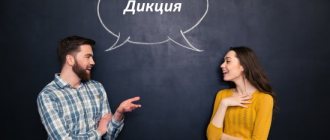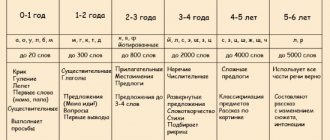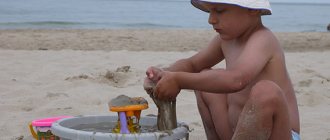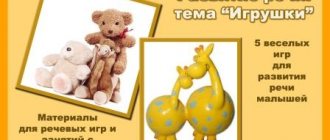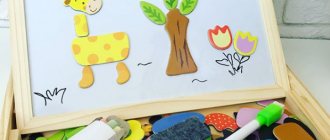Poems for diction
- A bug fell into Cheburashka's cup, Good Cheburashka took out the bug, put the bug on a piece of paper to dry. The bug dried up, rose from the piece of paper, and again fell into Cheburashka's cup.
- The blue moonlight did not let the donkey sleep, The donkey sat down on a boulder And yawned and yawned... And by chance the donkey suddenly swallowed the moon, Smiled, sighed - And fell asleep calmly.
- Evil rats Gnawed the roof, But a red kitten came, the rats ran into the holes and trembled there with fear. Khryusha - a piglet Oinks in his sleep: Oink and oink! Oink yes grunt! Give me the apricots! Piggy Pig, Before you eat, take some soap and wash your snout!
- Ten little chickens wandered into our kindergarten. They were brought in from the street by the Mottled Chicken. Dear chicken, you are on the wrong street, this is a kindergarten. But not for chickens!
- Sy-zy, sy-zy, it became boring without a goat. Se - ze, se - ze, I picked grass for the goat. Ri-li, ri-li, the cranes have arrived. Sha-zha, sha-zha, we found a hedgehog in the grass. Shche-zha, shche-zha, dirt on the bear’s shoulder. Zhi-shi, zhi-shi, they are as good as candy. Zu-su, zu-su, they don’t let a fox into the house. La-ra, la-ra, there is a mountain on a mountain. Pu-bu, pu-bu, an owl sits on an oak tree. Pa-ba, pa-ba, and under the oak tree there is a hut. Hey, hey, hey, chicken legs by the hut. No, no, no, that hut is coming to you. You, you, you, I found your traces. Those are the same, those are the same, but you are nowhere to be found. Tu-doo, tut-doo, and I go with a pipe. Ti-di, ti-di, come quickly.
- We can’t understand Dasha in any way, After all, Dasha has porridge in her mouth. But not buckwheat and not pilaf - This porridge is made of words!
- The letter “R” loves the tiger cub - He has been growling it since childhood. The letter “R” loves fish - Best of all... he is silent.
- Our little pig grunts loudly from the cradle on the letter “R”. I will be close friends with him - “R” will help me teach.
- I’m already skipping to my lessons with the speech therapist: After all, I can show my tongue to a strict teacher!
- Every officer must speak “R” perfectly! After all, otherwise he will not be a soldier in an even line. (Commands: “Attention!”, “Align!”, “Line up!”, “Pay off in order!”)
- It doesn't suit a deputy or a singer to be burry. Don’t give bread to parodists, learn to speak purely.
- We sat down in order, doing exercises together, not with our feet, not with our hands, but with our... tongues.
- Yesterday's hail damaged the grapes.
- Seryozhka cuts radishes into okroshka.
- And Marina’s gift included three huge tangerines.
- Tiger and lynx are relatives for pussy, Turnips and radishes are for radishes.
- Arthur in the portrait Wearing a burgundy beret.
- The rat has cheese rinds in his hole.
- Thirty-three huge crayfish, All in elegant red tailcoats.
- Spring rye is a grain crop.
- Princess Arina has three feather beds on her bed.
- We congratulated Ira on the radio.
- Cigarettes and cigarettes are all prohibited for the guys.
- Ice hole in the pond - I’ll come to fish.
- Our Borka dove with a beaver, but Romka dove with an axe.
- The driver is turning the steering wheel early in the morning.
- Curly redhead Yura is proud of his hair.
- Radio designer Invented a loudspeaker.
- A warm appeal to the people: Take care of your native nature!
- We will come to the holiday dressed up, neat and tidy.
- Crosswords and charades We are happy to solve them.
- I am happy to correct my speech apparatus.
- Arthur bought a tour to Europe.
- Prokhor and Varvara are a wonderful couple.
- The cook at the tavern guaranteed pasta for Ira’s side dish.
- And in the hands of the children are multi-colored balls.
- Star Raven repertoire: In the morning, in the evening - everything is CARRR!
- In our lake, Andrey Thirty caught eels. Fry, smoke them and boil them - Very tasty eels.
- To get the kernel from a nut, you need to crack through its shell.
- The beaver gnaws birch trees with its teeth, as if with sharp incisors.
- Sveta saw pineapples on a pine tree in a dream.
- The pussy asks Sasha: “Share the sausage!”
- The goose took a bath, but remained dry.
- In the garden, among the branches, a nightingale whistles.
- I tried, I tried - I signed for the parcel.
- The last leaf has fallen from the autumn aspen.
- The owl is observing the hourly routine, everything is on schedule, as agreed. (According to A. Usachev)
- Lenka treats Kolka’s sick knee with a green peg.
- I made Malvina's poodle from clay.
- I divide the orange into slices for Alina and for Kolka.
Storm from the shore
Tossed over, overturned The white-whiskered eels got angry and went wild. Thrown down, thrown up, Unraveled and intertwined from dawn to dawn. Trembling snakes, squealing snakes, What kind of dance, what kind of fairy tale have you started in the darkness? With swirling mists splashing the path, you have closed and obscured all the fairways to the ground. Encircled by the darkness, the ships were tossed about, lost in the ocean, tossed about uncontrollably, Water snakes, fire snakes lured them into the abyss. How are you deceiving? Isn't it the swiftness of the bending and twisting of long elongated bodies? And aren’t you caressing the intoxicating caresses that lead you to an unknown limit with slowness?
Reception "Day - Night"
During the reading process, you must maintain concentration and be able to navigate the text well. To practice these skills, students are encouraged to read following commands. As soon as the teacher says: “Day!” - Children start reading. Hearing the command “Night!” everyone closes their eyes. Then the word “Day!” sounds again. After this, you need to find with your eyes the place in the text where you stopped and continue reading.
This exercise is carried out for 5 minutes. You cannot follow the text with your finger.
The meaning and role of poems in the development of diction
There are many exercises and techniques for training diction. The most interesting among them is the reading of poems - both special and classical versions.
The peculiarity of this “poetic” method is its simplicity: it is suitable for both children and adults. The poems have a rhythm that helps you control your breathing, place emphasis on certain words, and learn to observe intonation pauses.
A poem to improve diction is a kind of tongue twister, framed in a rhymed form. This allows you to pay attention to those sounds that cause difficulties in pronunciation (“r”, “sh”, “s”).
A certain “singing” form of poems makes it possible to emphasize vowel sounds, which regulate the correct pronunciation of words and intonation, which plays a decisive role in the development of diction
The task of any technique (and poems, in particular) is the correct presentation of speech.
Thanks to this, a person will be able to clearly express his thoughts, make the necessary impression on his interlocutor, and prove himself in professions where communication skills are important.
Reading aloud for speech development
1. We train articulation. When reading aloud, we pronounce the words, forcing ourselves to sound articulate and clear.
Usually we speak without bothering ourselves too much, swallowing and chewing. This will not work with a literary text (unless the hero speaks in such a manner). It’s like in any training session – today I forced myself, tomorrow I didn’t notice how the skill worked in real conditions. 2. We develop intonation and learn calm pauses. In everyday speech, we use the usual style of presentation: similar constructions, the same words.
But the literary text conveys many shades: the characters shout, speak insinuatingly, and casually throw out harsh phrases. The descriptive parts also differ depending on the context: the battle and the autumn forest sound differently in the text. For a good reading, you will have to find a way to express the emotion in speech! This is intonation. By reading a literary text out loud, we force ourselves to change our communication habits and our speech becomes brighter. Many speakers are afraid of their silence. Is there a pause? “Uh”, filler words, empty phrases are included. The text confronts us with natural pauses and does not allow us to fill the space. We are forced to hear our silence, then we get used to it and see the beauty and power of a pause.
By regularly training, we expand the active palette of emotional colors in speech, the correct tempo, and pauses in the right places.
And that means, without thinking, we speak in such a way that the listener will not think of yawning. 3. We increase our vocabulary. Active vocabulary is fortunately sufficient, unfortunately limited.
New words will not appear in speech if they are not pronounced. And, reading books, we find our own words that are close to us, pay attention to them, pronounce them. In addition to words, we acquire turns of phrase, new ways of constructing phrases, manners of persuasion and description. Thus, on the one hand, we update the passive stock - we remember sonorous vocabulary and introduce it into speech. On the other hand, we learn new words and enrich our arsenal. Why do you need a large vocabulary? It allows you to better express your thoughts, create the desired image more easily and be known as a smart person. By speech you can always identify an intelligent and well-read person (remember Posner): or Nevzorov:
When reading aloud, we go beyond the usual speech patterns and speak differently than usual. How should you read? The main rule is in different ways. Depending on the text. The task is to convey as much as possible the emotions and accents laid down by the author. How we feel. In some places the dynamics of the narrative grow and we speak faster, in others there is a slow and soft conversation, in others there are exclamations, in others there is a whisper. There is no need to overact, you need to serve as a guide and enliven the text with your voice. Your task is to go beyond the usual speech style, and not to read quickly. Remember, the author worked a lot on the text, suffered through it, and was exhausted for you.
Reading time: 15-30 minutes a day is a great workout time.
If possible, read to someone. This is a beautiful habit, a way to pass the time and get closer. But for the exercise, it is more important that such a context is closer to ordinary communication - there is a listener. And so we tend to try harder.
PS This advice will be incomplete if we don’t talk about poetry. Poems are the same thing, only better, because they are more complex. It is more difficult to convey the meaning by observing pauses and intonation. Read them out loud, teach them, read them to others. Rap also counts. Useful links:
- We suggest starting with the story “Trollev Bridge” by Neil Gaiman - https://pikabu.ru/story/trollev_most_4199385 And this is his lecture on the benefits of reading fiction. Neil doesn't light things up, but he conveys important meanings https://www.youtube.com/watch?v=Fx5MxUaeeoY
- For video lovers. Here a guy talks about it, but not so convincingly: https://www.youtube.com/watch?v=t6p5YKzBPyI
Technology for practicing diction using poems
Since poetry is an effective form of developing diction, there are many methods for practicing pronunciation with their help. As mentioned above, you can train the pronunciation of sounds with the help of classical works or special, “narrator” poems.
The first option is more suitable for teenagers, as well as adults preparing for public performances. Speech therapists recommend reading poems by Homer, V. Mayakovsky, A. Blok, since these authors have a clearly defined rhythm (either smoothly melodious, or sharp and clear).
For children and adults with speech disorders, special poems are suitable where attention is paid to problematic sounds. Examples of such works are “Storm from the Shore” (“Thrown over, overturned ...”), “Live on the radio”, “Don’t leave the room” and others.
There are two main methods for reading poems. The first involves reading in one breath, which will teach you to control intonation and air flows necessary for pronunciation.
The second technique involves a leisurely but very clear pronunciation. Phrases can be recorded on a voice recorder, after which, after listening, you can “work on mistakes”, noting problem areas in pronunciation. And don’t forget that hard work and perseverance will certainly bear fruit.
So, poetry for diction is the most effective means. Thanks to rhyming lines, the articulatory apparatus can more easily cope with the pronunciation of complex sounds.
Related posts:
- What is "War and Peace" about? Summary of the novel “War and Peace” by chapters. All answers...
- P.P. Ershov “The Little Humpbacked Horse” - summary of “The Little Humpbacked Horse” by P.P. Ershov - a very brief summary for the reader...
- I.S. Turgenev “Mumu” “Mumu” I.S. Turgenev: read the story ONLINE without registration. The work in its entirety...
- The concept of “fan fiction”: what is hidden behind the name Fan fiction is a modern literary work with an interesting history. It turns out that...
"Re-reading" technique
This technique also involves reading the text multiple times. Children are given 1 minute to read. Then you need to count the number of words they can read in the allotted time. After this, this task is performed a couple more times.
The results will gradually improve, and this will allow the child to believe that he can read faster. When students read the text for the last time, there is no time limit. Thus, they will switch to reading unfamiliar text and read it at a faster pace.
Reception "Lips"
When speaking externally, reading speed slows down. Therefore, children should also be taught to read silently, without external signs of pronunciation. During reading, when the teacher gives the command “Lips!”, students should begin to read “to themselves.” At the same time, they need to press their finger against their closed lips to prevent them from moving. After the command “Aloud!” the finger should be removed and proceed to reading aloud.
When working to improve reading technique, it is important to take into account that the quantitative indicator depends on the type of temperament of the child and the level of development of his thought processes. Therefore, of course, it will not be possible to “bring up” all students to the required standards, but it will undoubtedly be possible to improve the results of everyone. In addition, in parallel with increasing reading speed, it is imperative to pay attention to the development of expressiveness and awareness of reading, to teach children to read correctly, without errors.
About the author-compiler: Gladko Marina Gennadieva, primary school teacher, work experience about 25 years.
